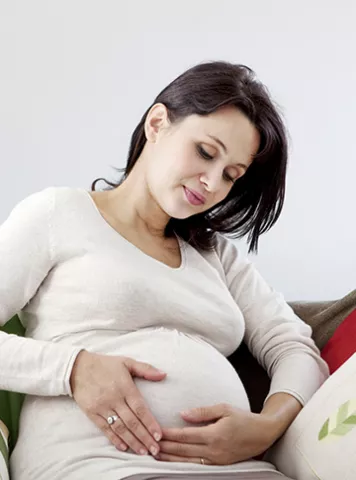Synopsis
Premenstrual Syndrome (PMS) can affect a woman's physical and mental health before her menstrual cycle. Symptoms may include fatigue, cramps, and mood swings. While the exact cause is unknown, hormonal changes are considered key factors. PMS can be managed with proper rest, hydration, exercise, and dietary changes.
What is Premenstrual Syndrome (PMS)?
Most women experience various symptoms of premenstrual syndrome, or PMS, in their reproductive years. PMS refers to a group of physical and emotional symptoms that occur in the days leading up to a menstrual period. These symptoms typically appear a few days before the menstrual cycle and tend to subside approximately 3-4 days after the cycle begins.
Although the intensity of these symptoms differs from woman to woman, in most cases, PMS does not significantly interfere with daily life.
Premenstrual Syndrome Causes: Why Does Premenstrual Syndrome Occur?
The exact premenstrual syndrome causes are not known; however, changing hormone levels are most likely the reason for these symptoms experienced by women. Some women may also have undiagnosed conditions, such as a depressive disorder that can worsen due to PMS.
What are the Symptoms of PMS?
- Depression : Many women feel low or have a lingering mood in the days leading to their periods.
- Mood Swings : It is common to experience multiple feelings such as guilt, stress, irritability, unusual anger, hopelessness, or very emotional over instances that may not provoke the same reaction otherwise.
- Anxiety : Along with increased stress, this also includes restlessness and a constant feeling of worry.
- Food Cravings : Changes in hormone levels can cause a craving for foods that are sweet or high in carbohydrates. These foods often also trigger a release of serotonin in your body, which can help you control other premenstrual symptoms.
- Headaches : For some women, headaches can become more frequent before their menstruation, and a few might even get intense migraines during this time.
- Breast Tenderness : As the hormone levels fluctuate, a woman’s breasts may become tender or swollen before menstrual cycles and then return to their usual state a few days after the cycle begins.
- Weight Gain : Women who keep track of their weight may notice a sudden spike in their weight before their menstrual cycle. This is due to fluid retention in the body and is not suggestive of their actual weight.
- Abdominal Cramping : As the uterus prepares to shed its lining, the uterine muscles contract and release a chemical named prostaglandins, causing pain in the abdomen and resulting in cramps. While the pain can vary for every woman, experiencing pain of extreme intensity may be a sign of endometriosis or another underlying problem, and it is best to see a doctor about the same.
- Backache : The pain caused in the abdomen due to prostaglandins can also radiate to the lower back for many.
- Acne Flare-Ups : If one’s acne only flares up in the week prior to menstruation, then the most likely cause is the body’s drop in estrogen and progesterone.
- Changed Sex Drive : Both estrogen and testosterone play different roles in affecting one’s sex drive, and fluctuating hormones can cause a change in a person’s libido.
- Insomnia : The rate at which one’s hormones change during PMS affects their body temperature and melatonin production, making it difficult to fall asleep.
What Can I Do to Reduce PMS Symptoms?
- Change In Diet : Eating foods rich in fibre, calcium, Vitamin B6, and Vitamin D throughout the month can ease premenstrual symptoms. Eating all three meals regularly keeps one’s blood sugar in control as well as minimises irritability. Avoid eating foods with too much sugar or too much salt.
- Exercise : Engaging in some physical activity for at least 30 minutes every day creates an outlet for the excess energy that one may have and is also capable of significantly reducing symptoms of depression and anxiety.
- Drink Fluids : Increasing the intake of fluids, especially water, has a direct impact on reducing bloating, dizziness, and cravings. But avoid consuming caffeine and alcohol.
- Get Enough Sleep : Maintaining a proper schedule with at least 7 to 9 hours of sleep even on days when you’re not experiencing PMS, can reduce fatigue and weakness.
- Take OTC Medication : Nonsteroidal anti-inflammatory drugs (NSAIDs) such as painkillers can relieve the pain of abdominal cramps as well as lower back pain.
- Take Hormonal Birth Control : In some cases, your doctor may prescribe certain hormonal birth controls to help keep the symptoms under control.
Are you Experiencing PMDD?
A condition known as premenstrual dysphoric disorder, or PMDD, may be affecting you if your PMS symptoms are so severe that they interfere with your ability to function normally during the day.
PMDD is a chronic health condition that is far more severe than PMS. Although anybody can have PMDD, those who have a family history of depression, postpartum depression, or PMDD are at a higher risk of getting it. Seeing a doctor for a diagnosis regarding the same is advised.
Given the many changes your body is going through at once, we know that having PMS can be daunting. It might be difficult to manage the emotional symptoms as well as the physical symptoms, but doctors can help you get the premenstrual syndrome treatment you need.
Common Questions Asked
How can I get PMS diagnosed?
Keeping a note of your symptoms will help your gynaecologist determine if you have PMS. Write down and rate any symptoms you experience daily for at least two or three months. Also, keep track of your menstrual cycle dates.
What relaxation methods can I use?
Your ob-gyn may recommend relaxation treatment to help reduce PMS symptoms. Breathing exercises, meditation, and yoga can all be part of relaxation treatment.
Which medication can I take for premenstrual syndrome treatment?
Most pharmacists provide over-the-counter pain medicines, which may help reduce physical symptoms such as cramps, migraines, backaches, and breast tenderness. Common medications include ibuprofen, naproxen, and aspirin.
Can PMS change with age?
Yes. PMS symptoms may worsen as you approach menopause in your late 30s or 40s and are in the transition period known as perimenopause.

Articles
2023
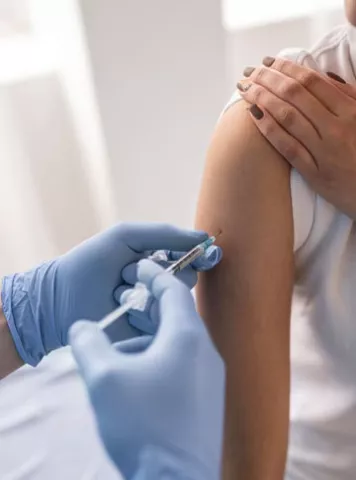

World AIDS Vaccine Day 2023: Can HIV & AIDS affect fertility or your infant’s health?
World AIDS Vaccine Day is observed every year on the 18th of May to create awa...
2023


Male Infertility Infertility Tips
Hyperspermia: Causes, Symptoms, Diagnosis & Treatment
What is Hyperspermia? Hyperspermia is a condition where an individual produ...
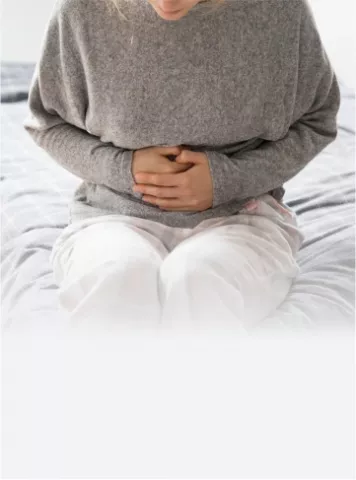

Guide to infertility treatments Infertility Tips
पीआईडी: पेल्विक इनफ्लैमेटरी डिजीज और निःसंतानता
पीआईडी - पेल्विक इनफ्लैमेटरी �...
2022
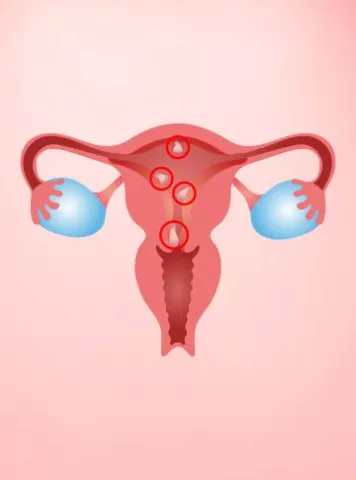

Infertility Tips Uterine Fibroids
Endometrial Polyps (Uterine Polyps)
What are Endometrial Polyps (Uterine Polyps)? Endometrial polyps, often ref...
2022


Female Infertility Infertility Tips
Why do You Need Fertility Treatment
As we all know infertility rate is constantly rising in our society day by day...
2022


Cesarean Section Vs Natural Birth
Surrogacy centers in Delhi and Infertility centers in Pune state that there ar...
2022


ನಿಮಗೆ ಹುಟ್ಟಲಿರುವ ಮಗುವನ್ನು ಅರ್ಥಮಾಡಿಕೊಳ್ಳುವುದು: ಗರ್ಭದಲ್ಲಿ ಮಗು ಹೇಗೆ ಬೆಳೆಯುತ್ತದೆ!
ವೀರ್ಯವು ಮೊಟ್ಟೆಯನ್ನು ಭೇಟಿಮಾಡ�...
2022


Diet Chart for Pregnant Women: The Right Food for Moms-To-Be
Pregnancy Food Chart 1. The daily diet must include the right amount of pro...
2022
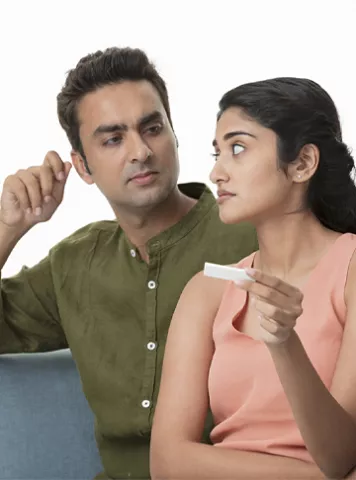

Can i become pregnant while my tubes are tied?
Pregnancy is one of the most important phases in women’s life and is conside...
Pregnancy Calculator Tools for Confident and Stress-Free Pregnancy Planning
Get quick understanding of your fertility cycle and accordingly make a schedule to track it



